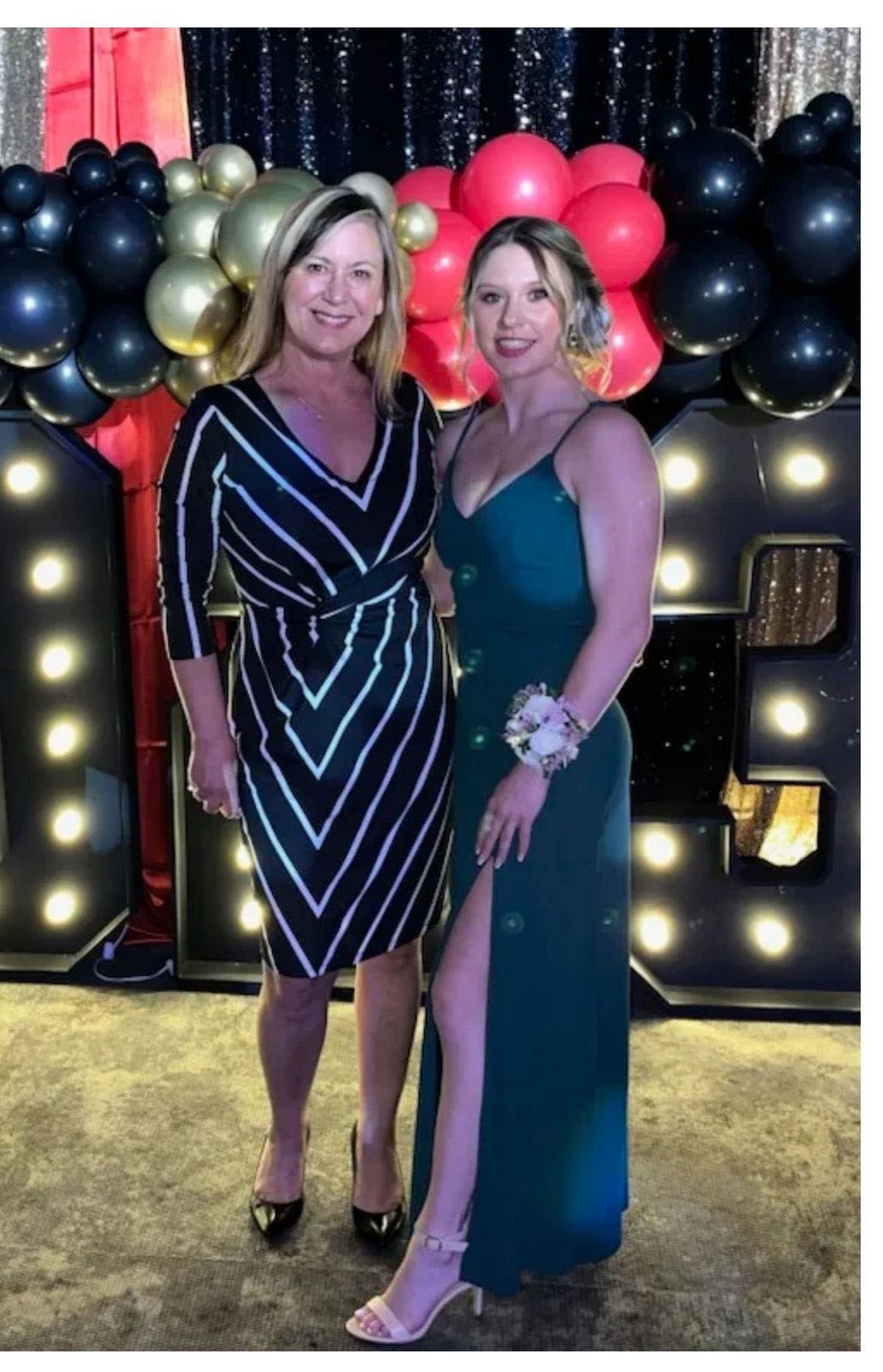Traffic reporter responds to body shaming email on live TV
Leslie Horton at a Christmas charity event in 2022. MUST CREDIT: Courtesy of Leslie Horton (Courtesy of Leslie Horton/Handout)
While at work on a recent morning, Leslie Horton, an on-air traffic reporter, received an email from a viewer during a commercial break that criticized her body. Less than five minutes later, Horton, 59, was back on the air.
“I’m just going to respond to an email that I just got, saying ‘congratulations on your pregnancy; if you’re going to wear old bus driver pants, you have to expect emails like this,” Horton, a Canadian broadcaster for Global News Calgary, said on live TV. “No, I’m not pregnant, I actually lost my uterus to cancer last year. And this is what women of my age look like. So, if it is offensive to you, that is unfortunate.”
She finished with: “Think about the emails you send.”
Horton said she did not hesitate to deliver her response that morning, Nov. 29.
“I was getting ready to do my traffic hit, and all of a sudden, these words just came out of my mouth,” Horton said in an interview with The Washington Post. “I didn’t plan them; I didn’t prepare them. They just came directly from my soul.”
She said her point was: “This is what I look like, and you don’t get to make me feel embarrassed about what I look like.”
Horton – who has worked in broadcasting for 35 years – said she has received critical and rude emails from the same man for the past four years “on a pretty consistent basis.”
In general, she said, receiving offensive emails isn’t uncommon for her or her co-workers.
“Myself and all my female colleagues, we all deal with it,” Horton said, adding that during her career, she has also received “messages that are inappropriate in a threatening way.”
In the past, whenever this particular emailer wrote her, she simply ignored him. This time, though, his words hit harder.
“There was absolutely something about this email that I felt at a cellular level,” Horton said. “The point of his email was to make me feel humiliated, to shame me and to make me feel bad about myself and my body. This is in the context of a woman who lost her uterus to cancer last year.”
Horton – who was diagnosed with endometrial cancer in December 2021 and underwent surgery to remove her uterus in February 2022 – has been open about her cancer experience with her viewers. She said she suspects the emailer was aware of her diagnosis prior to writing the nasty note.
What she has gone through with her health, Horton said, is part of why she decided to call out the emailer.
“I do think that is the key to why I couldn’t just ignore this one,” she said. “I’m no longer willing to accept and ignore behavior that I otherwise would have.”
“As a woman on TV who has dealt with inappropriate behavior – such as stalking – I am well aware that there is a price to pay for being visible and in the public eye,” Horton said, noting that the emailer in question has not been stalking her. “I’m also well aware that I shouldn’t apologize for being me in the public eye.”
Horton’s colleagues applauded her in the newsroom that morning.
“My work was immediately supportive, which is fantastic,” she said, adding that her 18-year-old daughter, Avery, was also proud. “We have had many conversations over the years about people saying inappropriate things.”
The public, Horton later learned, supported her, too. Global Calgary shared a clip of Horton’s response on X, formerly Twitter, on Dec. 5, and it now has more than 4 million views.
“I think this has struck a chord,” said Horton, who started receiving words of encouragement almost immediately after the segment aired.
There has been an avalanche of praise for Horton on social media.
“Good on you Leslie,” one person wrote on X. “You rock and this person is despicable!!”
“Leslie, you are a queen, a pinnacle of class, and just the most wonderful person,” another fan commented.
Despite calls to publicly name the emailer, Horton has decided not to.
“That’s not the point,” she said. “This is not to cancel somebody. This is to have a conversation about these types of things happening.”
Online harassment of female journalists is an ongoing problem, research shows. A 2021 report by the International Center for Journalists found that nearly three-quarters of the 714 female journalists surveyed said they had experienced online abuse in their work.
Horton did not anticipate that her unplanned retort would get so much attention. She hopes it will inspire others – and remind them that they’re not alone.
“If I can give one woman courage to find her voice and stand a little taller, I’m happy to do that,” she said. “We need to be more courageous. All of us.”


